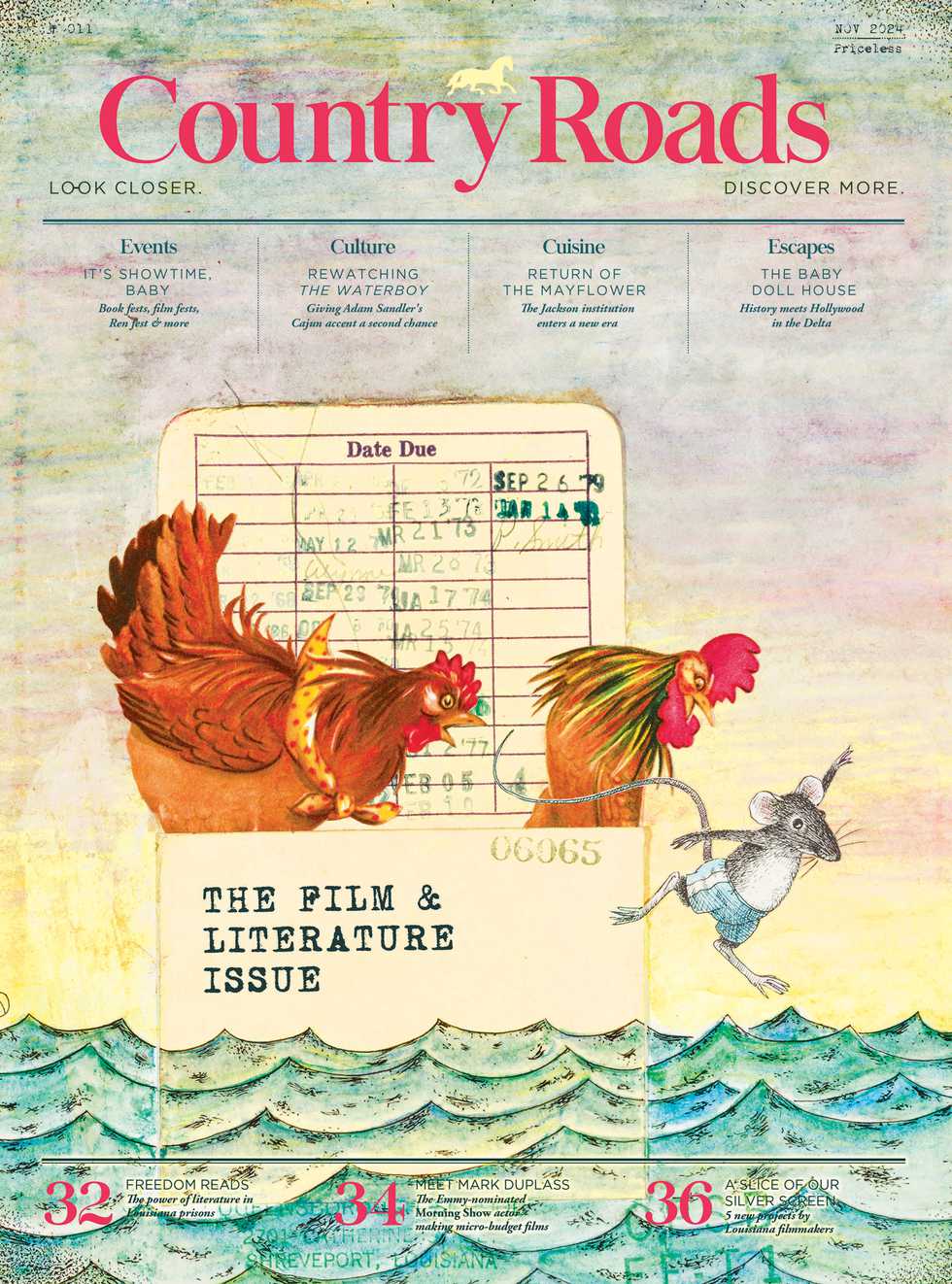
via MaxPixel
Much like today’s Bigfoot sightings, newspapers in the late nineteenth century frequently reported on a mysterious Louisiana figure known as the “Wild Girl of Catahoula.” No one ever discovered the Wild Girl’s identity, although some speculated she was the abandoned child of a Gypsy woman who once lived in the area with two young girls. One of the children was reportedly deformed, and the Wild Girl’s footprints indicated she had a club foot.
The first stories appeared in the early 1880s, and in July 1888 Harrisonburg’s Catahoula News reported she had been “causing a great deal of excitement” fifteen miles west of town. The Swilley family claimed the girl snatched up a goose on their farm and then took off into the woods and evaded several search parties.
A month later, two men reported seeing the Wild Girl near Hemp’s Creek in LaSalle Parish. The St. Paul Daily Globe declared, “They say she is one of the most ferocious-looking beings that the human eye was ever cast upon.” The men tried to question her, but she would not let them get near. The newspaper claimed, “She is as fleet as a deer, and at one leap she cleared a root seven feet high. She uses no language, only gibberish.”
The men described the Wild Girl as being about sixteen years old, four and a half feet tall with long, beautiful brown hair, and weighing 125 to 140 lbs. She carried an old knife and seemed to limp when she walked, although they could not detect a deformed foot.
Once again, a search party was organized to try to capture the Wild Girl, but it was unsuccessful.
[You might like: Rough Riders: What do Teddy Roosevelt and Tabasco have in common?]
Three months later, the St. Martinville Weekly Messenger announced that the “‘Wild Girl of Catahoula’ has turned up again.” This time the witnesses were Capt. J. M. Ball and J. C. Goulden, two men of good character who were fishing on Clear Creek near Little River.
Ball claimed that when he heard some nearby hogs squealing as if something had attacked one, he and Goulden investigated. “They soon came to a human being standing on a log with a pig in one hand and a short knife in the other. . . . When she saw the two gentlemen about thirty yards off, she did not seem to be half as much afraid as they did.”
The two men backed away from the woman, whom Ball described as “a white female without clothes and would seem to weigh about 140 pounds and as active as a cat. . . . He says she was covered with hair varying in length in different parts of her.” The Wild Girl finally ran off through the woods with the pig and her knife.
The Clear Creek episode led some people to suspect that the entire Wild Girl story was a hoax. The Lake Charles Echo claimed that some Alexandria businessmen decided to cash in on the story after the first few sightings.
[Read this: When the French Quarter Was Italian: A skeptic finds her family's roots in an old macaroni factory.]
At the time, alligators were often used to advertise matches, patent medicines, and almanacs. The newspaper speculated that the businessmen got the idea of using the Wild Girl’s image for advertising and hired Goulden, who happened to be a popular Lake Charles artist, to concoct the story. While the nation’s newspapers drummed up interest in the Wild Girl, Goulden was supposedly hard at work creating an illustration of her with the pig and knife to use in some unspecified advertising campaign.
The Echo’s theory would make sense if it weren’t for the fact that respectable citizens continued to encounter the Wild Girl for at least three more years. According to an Idaho newspaper, prominent Pineville merchant J. H. Hardtner and his sixteen-year-old daughter were traveling with another couple in buggies from Fishville to Pineville in October 1890 when “they saw a white female . . . dressed in a faded home-spun dress, and barefooted.”
The woman ran away “at a speed such as, all say, they never saw (a) human being run.”
The last mention of the Wild Girl the author could find was in 1891 when a woman supposed to be her was seen in upper Franklin Parish. She was described as being very powerful, covered with hair, and carrying a knife or sword. On one occasion, she attacked a boy at Lamara, but bystanders chased her away.
Because this was the first time the Wild Girl was known to be violent, a group of armed men gave chase with dogs but could not catch her. The ultimate fate of the Wild Girl of Catahoula is not known.
Dr. Terry L. Jones is a professor of history at the University of Louisiana at Monroe who has received numerous awards for his books and outdoor articles.

